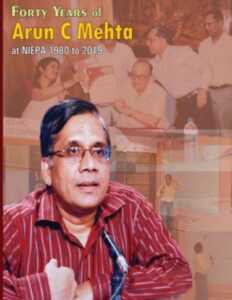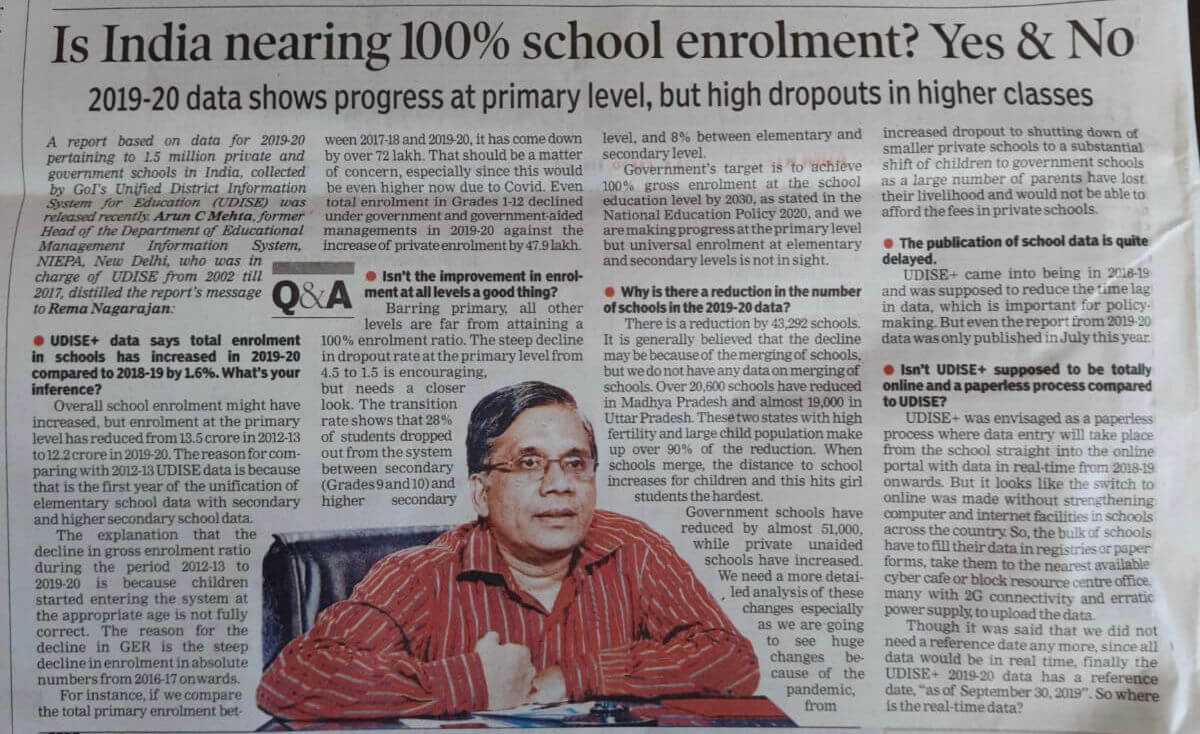DIET: An Evaluation Study
DIET: An Evaluation Syudy
A recent evaluation study on functioning of DIETs by Govinda and Sood of NIEPA has come out with many revelations. The study found that different DIETs are at different state of development as some states have just begun and the others started very late. Since the inception of the scheme, a number of new districts have been created across the states and DIETs in these districts by and large have not been established. Most of the DIETs (83 per cent) have their own buildings but they are poorly maintained. In a few states, such as Delhi, Pondicherry and Meghalaya, hostel facilities are not available and as such 39 per cent of the DIETs do not have hostels. The study reveals that girls’ hostels are not fully utilized. The states have divergent recruitment policy and 4 to 80 per cent of the positions across the states are vacant. In all the states, the study found shortage of the teaching positions.
With a few exceptions, ET equipments are not found in working condition. In a state like, Uttar Pradesh they are not at all in use. Most of the states have adopted DIET guidelines in total and as such there are no state-specific adaptions. In a large number of DIETs, units like Planning and Management, Curriculum and Material Development, Educational Technology etc. are found almost non-functional. The study found non-involvement of DIET faculty in development and implementation of plans. Even in DPEP districts, though willing, the faculty is not involved in managing and development of information systems. Libraries have been found to be totally neglected in most of the DIETs.
The study found lack of coordination in organizing in-service training programmes with the activities of BRCs and CRCs in many DPEP states. Most of the DIETs are implementing standard programmes of the states and hence a very little innovations are noticed. The DIETs focuses its activities only on primary school teachers and orientation of other functionaries is sporadic. The study notices that in-service programmes are conducted without a long-term perspective.
The study by Govinda and Sood further found research and field experimentation the weakest component in DIETs. Research activities are not reported from the DIETs located in the North Eastern part of the country. This is because of the fact that in many states, sub-committees on studies and action research have not been constituted. Low motivation and lack of capacity and academic support are found to be the other major reasons. There are varying patterns so far as the management and coordination of the programme at the state level is concerned. SCERTs have emerged as the main coordinating agency in a number of states. However, poor support from the SCERT is reported in a few states. Under utilization of funds is also found to be a common feature in most of the DIETs.
*Summarized by the author based on the presentations made by Dr. R. Govinda and Dr. N. Sood at NIEPA, New Delhi on May 17, 2000.





